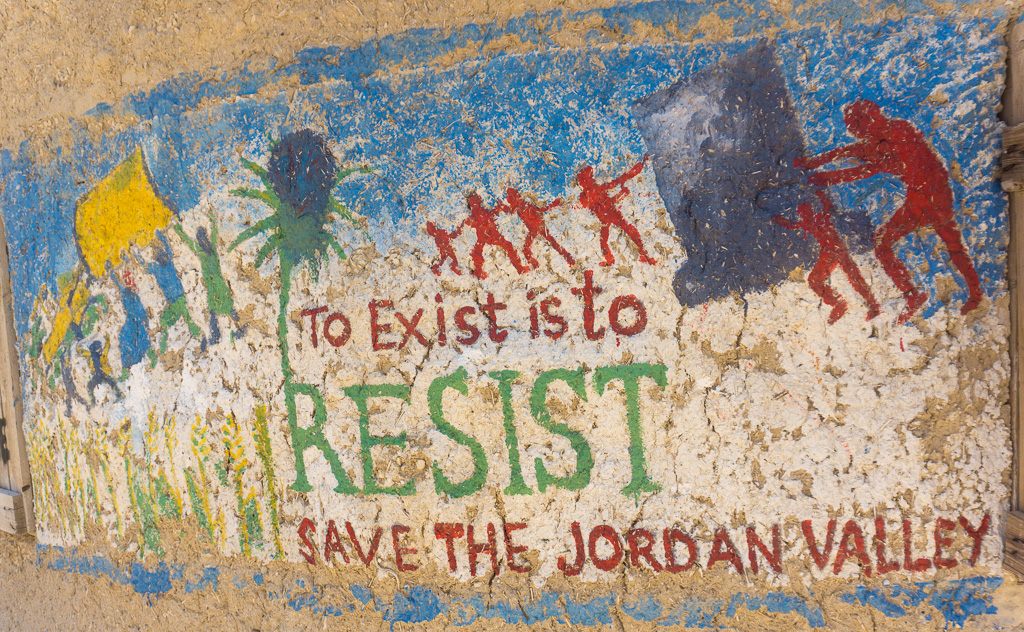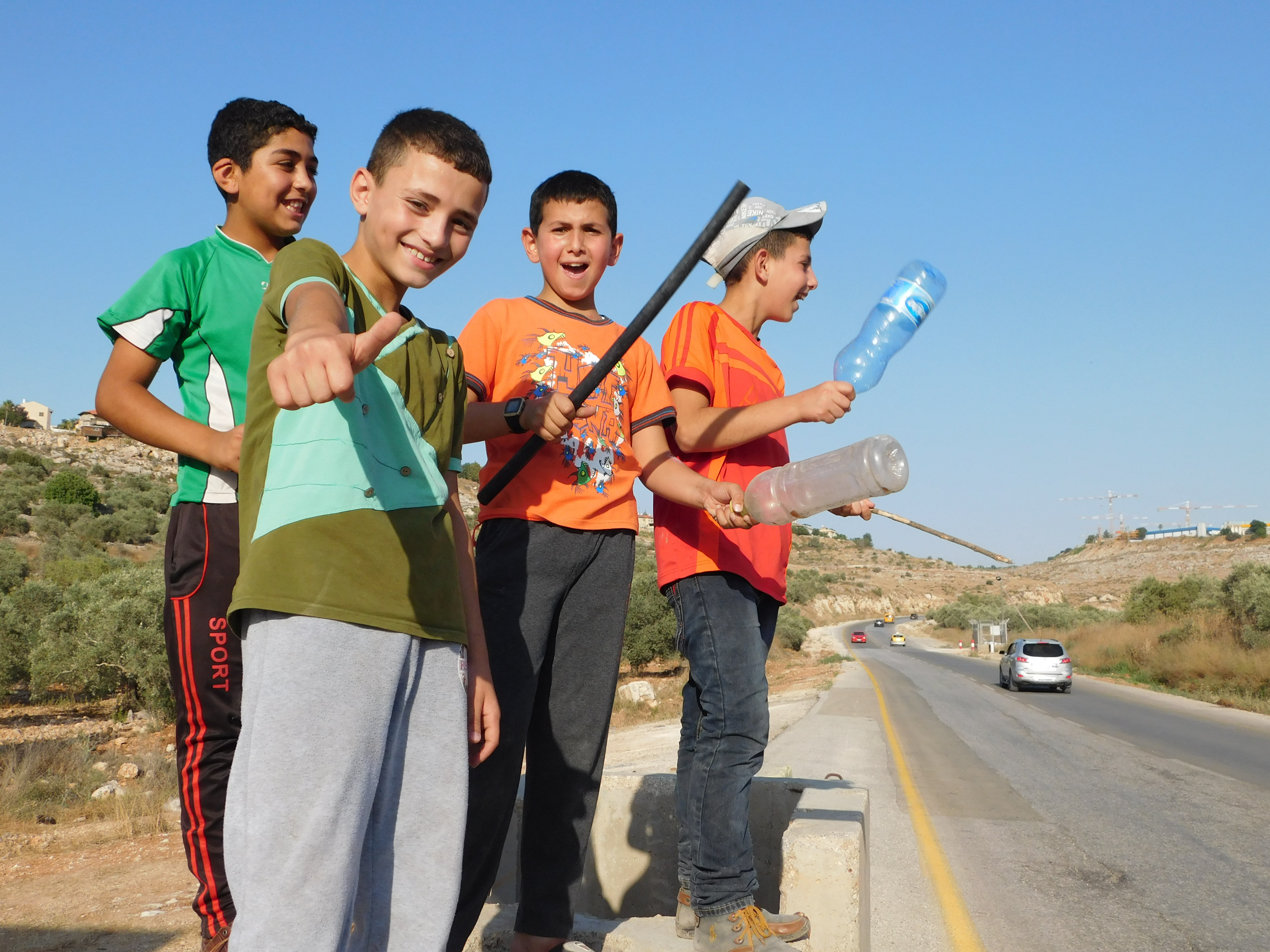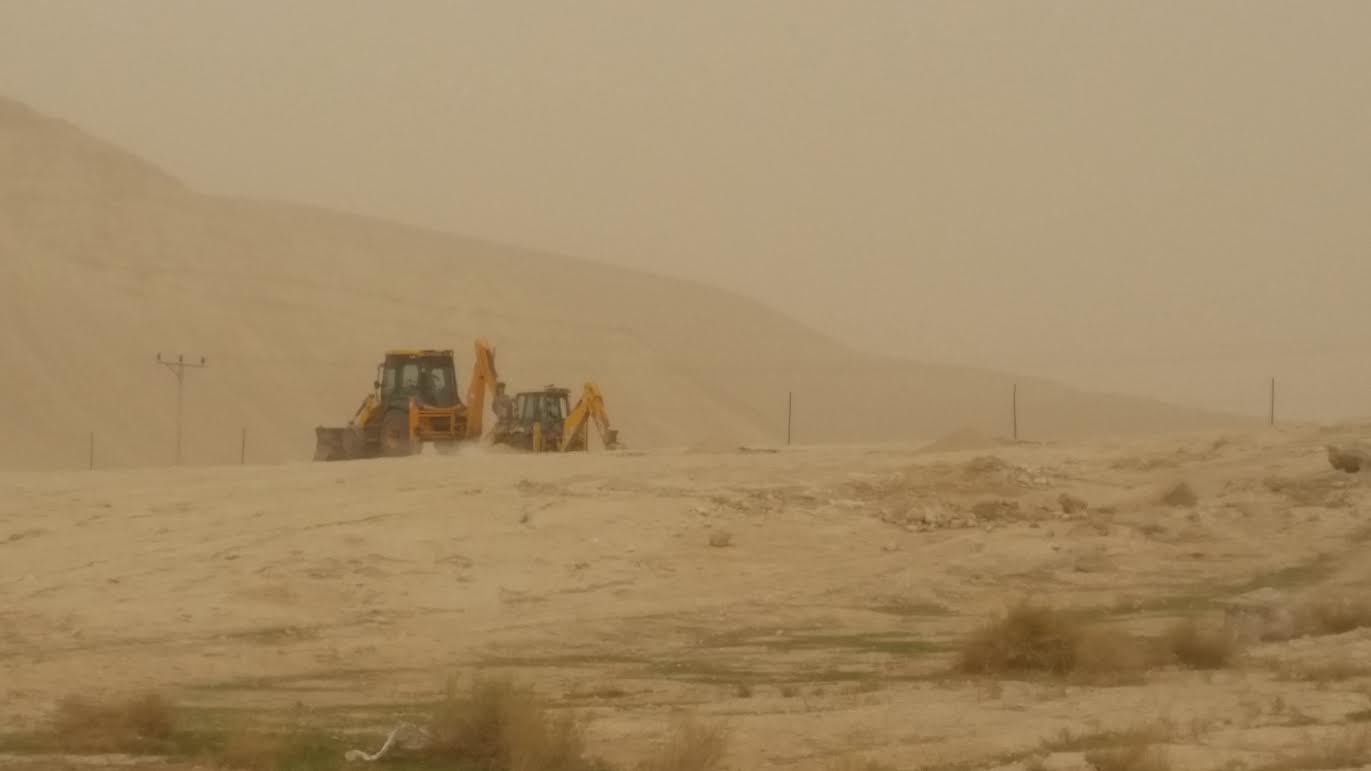Tag: Water
-
Diary entry from an ISM volunteer. Northern Jordan Valley.
13th August 2018 | Kristin Foss, International Solidarity Movement | Northern Jordan Valley I lost my flight.. On purpose.. I was pretty sure I would though, when I left for Palestine. To be honest, I don’t think its gonne make it easier to leave later. The more I know, the more people I know – the more involved…
-
Qarawah water apartheid
21st June 2016 | IWPS | Deir Istiya, occupied Palestine When Aziz ‘Aasee, the mayor of Qarawah Bani Hassan village drives through the streets, we’re stopped every few meters by one of his constituents, all of whom are asking the same question: When will we have water again? For some, the question is a joke;…
-
Further land grabbing in Jordan Valley
31st December 2015| International Solidarity Movement, Nablus Team | Jordan Valley, Occupied Palestine During the past 6 months, the Jordan Valley Solidarity Campaign has registered further land grabbing in Fasayal village in the Jordan Valley. The land, which originally belonged to a Palestinian owner, was invaded 6 months ago by Israeli authorities accompanied by settlers from…



